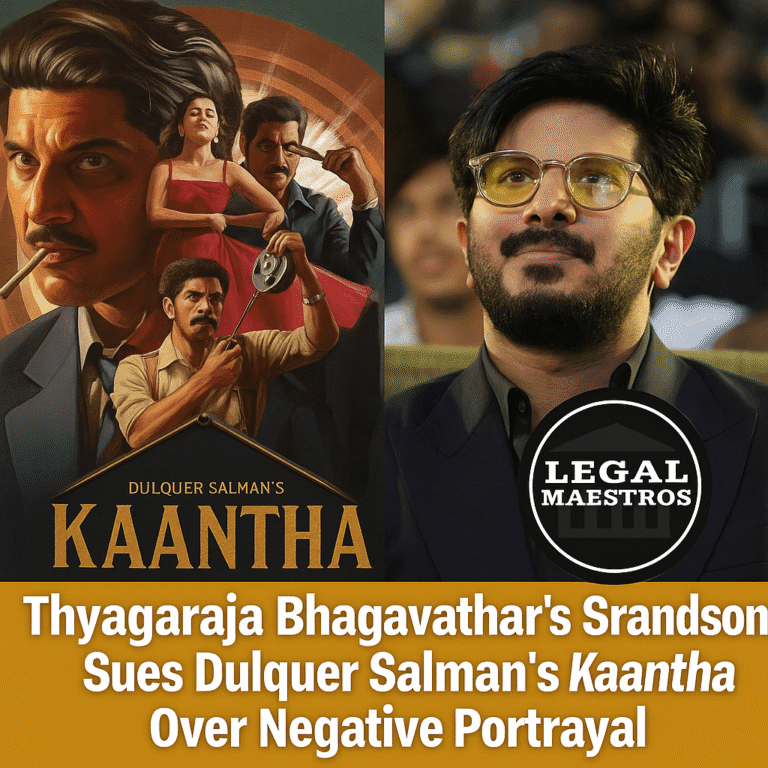
The more recent the Supreme Court decision of the case of Krishan Gopal vs. Gurmeet Kaur (Dead)b), Through LRs.,& Ors. can give an excellent grasp of the measure of contractual obligations, equitable reliefs of specific performance of the contract and the effects of the contract of fraud on a court of law. It has become an important precedent since it involves the Court ruling on what must and should not happen to disregard the law and this case ruled on July 15, 2025, needs to be followed to determine that the Court is determined to see justice wherever it is not brought forward through inevitable circumstances.
The source of the Conflict: Facts of the Case
This is a land row regarding an agricultural land of around 9 acres in Hoshiarpur, Punjab which has initially belonged to a Krishan Gopal. On 8th October, 2001, Krishan Gopal has signed an Agreement to Sell with Gurmeet Kaur and her two sons, namely Arvinder Singh and Kiranjit Singh, the total consideration regarding the sale being 10,00,000. It paid an earnest money of 1,00,000 and the rest 9,00,000 was to be paid by Krishan Gopal within January 31 2002 only then the sale deed was to be executed and possession would be handed over. An important issue in the settlement was that that Krishan Gopal was to secure possession of the land to the satisfaction of the purchasers before the sale deed was signed and this means that he did not have the land at the times that they settled the agreement.
In April 2002, Gurmeet Kaur and her sons, when Krishan Gopal did not execute sale deed, brought an action of specific performance. They alleged that they were granted in possession in November 2001 and had used a good deal of money to render the land to be cultivated. Though agreeing to the contract, Krishan Gopal raised doubt on their willingness and readiness to pay the balance consideration.
For any queries or to publish an article or post or advertisement on our platform, do call at +91 6377460764 or email us at contact@legalmaestros.com.
An interesting finding was coming to light during the trial that, there was one Arun Kalia who had filed a suit against possession of the same land and on May 22, 2002 and the Tahsildar of Hoshiarpur had passed an order stating that Arun Kalia was the cultivator. It is on this order that Krishan Gopal claimed that the plaintiffs had not proved that they were in possession. The suit was decreed by the Civil Judge, Senior Division, Hoshiarpur, on the 21st of October, 2008, when it was found that the plaintiffs were willing and ready to do their part of the contract and also it was observed that Krishan Gopal had given mixed statements as to whether he had turned up at the office of the Sub- Registrar or not. The court further awarded the plaintiffs delivery of possession which was not specifically requested but something that was allowed under the law. The Additional District Court, Hoshiarpur, approved this decision and later by high court of Punjab and Haryana.
A Web of Lies: Conflict of Interests and Fraudulent Dealings
The plaintiffs then sought an execution having the first appeal of Krishan Gopal rejected. This development brought in the objections by Arun Kalia and others including Krishan Dev Pathak and Kamla Dev Pathak in this stage. They asserted a conspiracy made between the holders of the decree with the judgment debtor, stating that Arun Kalia had been handed the suit land on oral agreement with Krishan Gopal in January 1998, that he can cultivate the land rent free over a period of five years and thereafter he can become a tenant of that land. Arun Kalia further disclosed that on May 29, 2002 Krishan Gopal sold the suit land to him as per two registered sale deeds without mentioning the existence of the suit. In their turn, Arun Kalia sold the land to Krishan Dev Pathak and Kamla Dev Pathak on April 4, 2012.
These objections have been put aside on July 8, 2016 on the grounds that there is no proof that there was collusion, and also that Krishan Gopal had aggressively opposed the case. Most importantly, the court also had a decision that sale deeds entered between Krishan Gopal and Arun Kalia and sales entered by Arun Kalia were under Section 52 of the Transfer of Property Act, 1882, and the doctrine of
For any queries or to publish an article or post or advertisement on our platform, do call at +91 6377460764 or email us at contact@legalmaestros.com.
lis pendens which incapacitates them to hinder the effect of execution of the decree. The High Court supported this ruling.
Judicial Review: Readiness, Willingness and Lis Pendens
In the ruling of the Supreme Court all the underlying issues were carefully discussed. On the side of the plaintiffs lack of readiness and willingness, the Court again affirmed that it is deduced on parties behavior and it does not always give the need to pay the whole consideration of the sale. The fact that the plaintiffs were in good financial position as it was proved through their bank accounts satisfied the lower courts and did not change to the superior courts, that is, Supreme Court. The fact that Krishan Gopal did not tell a coherent story when asked to tell about his presence there at the office of the Sub-Registrar was another thing which turned against him.
Another important point of the judgment is related to the failure of Krishan Gopal to report the vital information at the stage of the first suit. Even when he took the help of the Tahsildar order, he failed to reveal the alleged tenancy of Arun Kalia, the order of Tahsildar confirming the possession of Arun Kalia or the sale deeds which have been done in the favor of Arun Kalia on May 29, 2002. Stating that these sales which were made subsequent to the filing of the suit of specific performance were clearly within the provisions of Section 52 of theTransfer of Property Act, 1882, the Court went on to add that, the doctrine of partial specific performance was also applicable.
For any queries or to publish an article or post or advertisement on our platform, do call at +91 6377460764 or email us at contact@legalmaestros.com.
lis pendens. This legal rule states that that a property which is subject to litigation cannot be conveyed to the disadvantage of any of the sides to the action. Thus the further sale deeds in the name of Arun Kalia were also considered null and void.
Breaking Down Collusion and Striking Equities
The decision was that the Supreme Court was gravely suspected of the tenancy agreement that was not in written form which was upon oral discussion between Krishan Gopal and Arun Kalia and it was labelled with the provocation of collusion and with fraud. The Court also observed that it was unlikely that Krishan Gopal would agree to five years of land use in low rent and thereafter in an ordinary tenancy. This was further to be revealed under the false pretences of their tenancy when Krishan Gopal sold the land subsequently to Arun Kalia. The Court too observed how Arun Kalia was aware of the plaintiffs claim but he chose not to speak up till the executions proceedings were initiated.
Although the Court had to consider the fact that the plaintiffs themselves had failed to claim their own possession, as the Court of law has agreed to sell it themselves, in spite of the knowledge of action held by Arun Kalia, the Court had upheld the authority of Trial Court to decide on this matter.
For any queries or to publish an article or post or advertisement on our platform, do call at +91 6377460764 or email us at contact@legalmaestros.com.
grant the relief of possession sovereign in Section 22 of the Specific Relief Act, 1963. This provision enables courts to order possession in the area of the specific performance without necessarily having been requested especially in the interests of justice.
When weighing the interests of every side party, the Supreme Court also remembered the astronomical increase in prices of lands since the initial agreement. Though, in most cases, increase of price of the land per se does not eliminate specific performance, the Court, to do full justice, ordered the plaintiffs to pay some more to Krishan Gopal, out of addition to the balance sale consideration of 9,00,000 already deposited by plaintiffs, to the extent of 25,00,000.
A landmark Verdict
At last, the Supreme Court dismissed the appeals and held that the sale deeds executed by Krishan Gopal in his favour i.e. in favour of Arun Kalia and thereafter by Arun Kalia in his favour i.e. in favour of Krishan Dev Pathak and Kamla Dev Pathak were void. The wisdom of this judgment can effectively support the principles of contractual sanctity, the doctrine of
For any queries or to publish an article or post or advertisement on our platform, do call at +91 6377460764 or email us at contact@legalmaestros.com.
There is lis pendens and the inherent power of the courts to take corrective action on injustices, regardless of a complicated and a fraud pattern. It emphasizes that the parties cannot avail of their own deceitful behaviour to outsmart lawful claims.





![JOB POST: Junior Associate at ASM Law Chambers, Jaipur [Freshers]](https://legalmaestros.com/wp-content/uploads/2025/11/Gemini_Generated_Image_8wrxer8wrxer8wrx-768x708.png)

